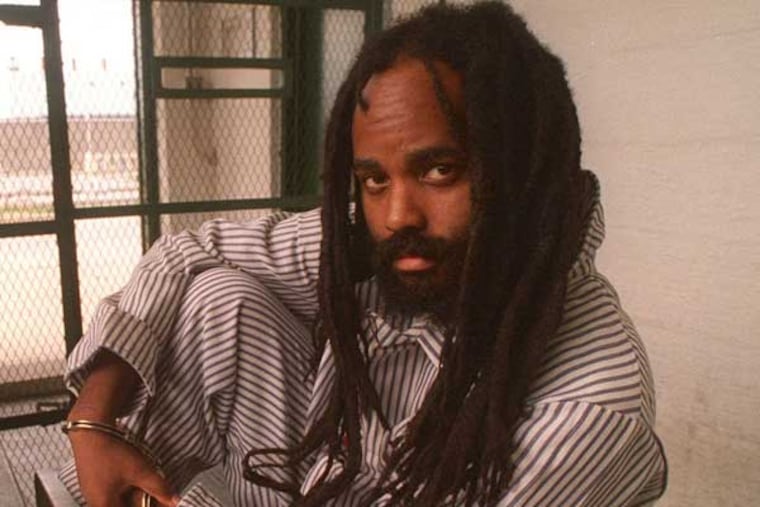Mumia Abu-Jamal ailing, supporters say
A lawyer representing Mumia Abu-Jamal said the former death-row inmate was hospitalized Monday for an undisclosed reason. Bret Grote, legal director for the Pittsburgh-based Abolitionist Law Center, said he and a small group of supporters were told by staff at Schuylkill Medical Center that Abu-Jamal was a patient there.

A lawyer representing Mumia Abu-Jamal said the former death-row inmate was hospitalized Monday for an undisclosed reason.
Bret Grote, legal director for the Pittsburgh-based Abolitionist Law Center, said he and a small group of supporters were told by staff at Schuylkill Medical Center that Abu-Jamal was a patient there.
Grote said he saw three prison correctional officers, including a supervisor, guarding the door to a critical-care room where Abu-Jamal was being treated.
"We're concerned, about as concerned as it gets, about Mumia's health," Grote said.
A woman answering the phone at the Schuylkill County hospital said there was no one named Abu-Jamal or Wesley Cook, his birth name, listed as a patient there.
A spokeswoman for the state Department of Corrections declined to confirm that Abu-Jamal had been hospitalized. "We never discuss an inmate's medical condition," said deputy press secretary Susan Bensinger in an e-mail.
Around noon, friends had gone to visit Abu-Jamal at the State Correctional Institution at Mahanoy and were told that the 60-year-old inmate had been taken to the hospital, Grote said.
The prison had given preliminary permission for Grote and others to visit Abu-Jamal, his attorney said, but the hospital had not yet received the clearance.
Grote said he hoped to get that sorted out Tuesday morning. He also wanted access to Abu-Jamal's medical information, including any prison incident reports that would describe why Abu-Jamal required medical attention.
Abu-Jamal was convicted of the 1981 murder of Philadelphia Police Officer Daniel Faulkner. He was sentenced to death in 1982, but that sentence was overturned by a federal appeals court and reduced to life without parole.
Grote was in Harrisburg on Monday representing Abu-Jamal in a pending federal court challenge to a Pennsylvania law that he argues infringes on his clients right to free speech. The so-called "mental anguish" allows crime victims to seek an injunction against "conduct which perpetuates the continuing effect of the crime on the victim."
The law was swiftly passed in October by the legislature soon after Abu-Jamal earlier that month gave a recorded commencement speech at a college in Vermont.